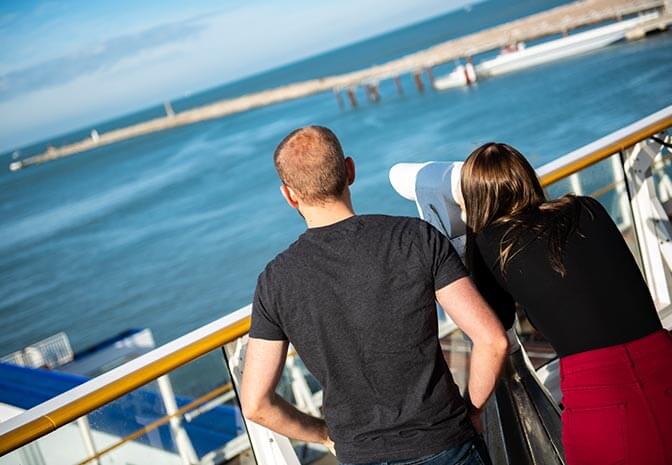If you are thinking about any changes that could have an impact on travelling to Europe after Brexit you are not alone, but you will still be able to enjoy amazing adventures and happy holidays across the Channel after the 1st January 2021.
We have carried out some research and put together some tips for travelling to Europe after Brexit which we hope will help to put your mind at ease.
Travel insurance and EHIC after Brexit

At the moment, as a UK resident you will have access to an EHIC card which enables you to access state medical care if anything happens while you are in an EU country. You will still be able to use your valid EHIC card after Brexit until it expires, and after this you’ll need to apply for a Global Health Insurance Card. Find out more about medical treatment after Brexit.
It has always been advisable to purchase travel insurance before you head abroad so that you have additional cover that protects you, but you will definitely need to have this post-Brexit.
If you are concerned about having to cancel your holiday accommodation following Brexit, you might feel more confident using Booking.com, or other hotel providers, as they often offer the option to cancel up to 24 hours before your arrival date.
Visas after Brexit
When you travel as a tourist, you won’t need a visa in order to visit an EU country, Iceland, Liechtenstein, Norway or Switzerland, unless you plan on staying for longer than 90 days within a 180 day period. If you are hoping to stay for longer or are travelling for educational or business reasons, you may need to apply for a visa or permit. You can find all of the visa information you need for the country your travelling to on the Government’s foreign travel advice page, and might also like to read our advice on post-Brexit documentation.
Driving in Europe after Brexit

If you like to take your car on holiday with you so that you can explore at your own pace, you will still be able to do this after Brexit but the rules for driving in the EU may change from 1st January 2021.
Following Brexit, you will still be able to drive in the EU using your UK issued card driving licence. However, if you have a paper licence or one that was issued in Gibraltar, Guernsey, Jersey or the Isle of Man, you’ll need to apply for an International Driving Permit (IDP). These can be purchased for just £5.50 from the Post Office, and you may need multiple permits depending on how many countries you plan on visiting.
As a UK driver, you will need to carry a physical copy of a green card in order for your insurance to be valid in the EU – you will be able to get one of these from your insurer. There is no cost to this but you may need to pay an admin fee. You’ll need to contact your insurance company 1 month before you travel in order to receive your green card.
When driving in an EU country, you need to take either your vehicle log book (V5C), if you have one, or a VE103 which shows that you’re allowed to use your hired or leased vehicle abroad. You should also have a GB sticker on the rear of your car, unless your number plate includes the GB identifier on its own or with the Union flag.
Taking your pet to Europe after Brexit

Taking your pets on holiday by ferry is a stress-free experience, and this won’t change when Britain leaves the EU, but you will need to take some extra steps before travelling to mainland Europe after Brexit.
To bring your dog, cat, or ferret on board from 1st January 2021 they will need to have had a rabies vaccination 21 days before you travel.
You only need to go through this process the first time you travel to Europe with your pet following Brexit, providing that you keep them up to date with their rabies boosters.
Within the 10 days before you travel to the EU or NI with your pet, you’ll be required to visit an official vet to get an animal health certificate. To do this, you’ll need:
- your pet’s vaccination history
- your pet’s microchipping date (they must be microchipped before you travel)
You will also need evidence that your dog has received tapeworm treatment if you’re travelling directly to Finland, Republic of Ireland, NI, Norway or Malta.
You can enter the EU or NI within 10 days of receiving the animal health certificate, and it is valid for 4 months from the date of issue. This includes re-entry into the UK within this time too. You will need to get a new animal health certificate every time you take your pet to the EU or Northern Ireland. For more information, take a look at the Government’s advice for travelling with your pet after Brexit.
Free mobile roaming after Brexit
When Britain leaves the EU, the guaranteed benefit of free mobile roaming in EU countries will come to an end. This means that you may need to pay for calls, texts, and data during holidays in Europe. There is a law in place which means that you won’t be charged over £45 for data without being made aware first, you’ll need to opt in to be able to spend over this amount during your trip. All phone operators will charge different amounts for roaming, so ensure that you check with your operator before you travel from 1st January 2021.
We hope that these tips for travelling to Europe after Brexit, have helped to put you mind at ease, and we look forward to seeing you on board soon! For more information, visit our Brexit hub where you’ll find further details about these changes and more.



